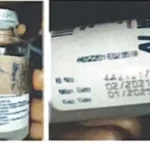NAFDAC’s Plan to Review Sanctions on Exporters of Substandard Products

The National Agency for Food and Drug Administration and Control (NAFDAC) has announced its intention to review the sanctions imposed on exporters of substandard products [1]. This decision comes in response to the increasing rejection of substandard goods in foreign countries, which has raised concerns about the quality of Nigerian exports [1].
Reasons for the Review:
During a news conference, NAFDAC’s Director-General, Prof Mojisola Adeyeye, highlighted several reasons for the review [1]. These include:
- Non-compliance with advisory guidelines: NAFDAC has established advisory guidelines to encourage participatory exports, but some exporters have failed to comply with these guidelines [1].
- Lack of quality control and safety tests: Many exported food products are processed without undergoing statutory testing by NAFDAC, leading to the export of goods without proper quality control and safety tests [1].
- Non-utilization of free laboratory testing: Exporters have not taken advantage of the free laboratory testing services provided by NAFDAC for export samples, which has contributed to the export of substandard products [1].
- Connivance of unscrupulous agents: Some agents involved in the export process have been found to collude with exporters in bypassing quality control measures, further exacerbating the issue [1].
- Exclusion of NAFDAC’s requirements: NAFDAC’s requirements for regulated products have been excluded from the mandatory pre-shipment inspection in the National Export Supervision Scheme (NESS), administered by the Federal Government-appointed Pre-shipment Inspection Agents (PIAs) [1].
- Non-compliance with sanitary and phytosanitary measures: Some exporters have been unwilling to comply with minimal sanitary and phytosanitary measures required for exports to countries with stringent market access, leading to the rejection of Nigerian products [1].
Regulatory Measures to Address the Situation:
To address these challenges, NAFDAC has outlined six regulatory measures that will be implemented [1]:
- Inclusion and implementation of NAFDAC Good Manufacturing Practices (GMP) and Good Hygienic Practices (GHP) for regulated food and drug products.
- Laboratory tests: NAFDAC will conduct laboratory tests such as mycotoxin, pesticide residue, and heavy metals certification for regulated food and drug products.
- National Export Supervision Scheme (NESS): NESS will be carried out on some products by the Federal Government-appointed Pre-shipment Inspection Agents (PIAs).
- Inclusion of NAFDAC in the Central Bank of Nigeria (CBN) export proceed (NXP) form processing.
- Engagement with the Comptroller General of Customs as the new administrator of the Nigeria Single Window Trade portal to facilitate export processes.
- Strengthening in-country regulatory infrastructures on export through the introduction of NAFDAC Regulations on Export 2022.
Collaboration and Awareness:
NAFDAC will collaborate with the Nigerian Exports Promotion Council (NEPC) to regulate goods and ensure compliance with export requirements [1]. Additionally, the agency will continue to conduct awareness and sensitization meetings with export trade operators to educate them on NAFDAC guidelines for regulated products [1].
Learn more:
- NAFDAC to review sanction on exporters of substandard products
- NAFDAC To Review Sanction On Exporters Of Substandard Products
- NAFDAC to Review Sanction on Exporters of Substandard Products Daily Asset Online


